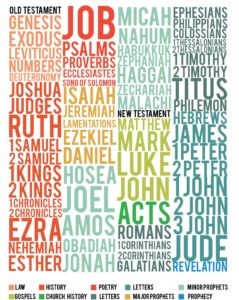One of the reasons why I’m enjoying/profiting from Carrell’s book, Preaching That Matters, is because of the massive amount of research and case studies she used as the basis for her book.
For instance, believe it or not, the top concern of preaching pastors relates to their content; delivery was second. She writes,
“In The Great American Sermon Survey when clergy were asked to describe their greatest preaching challenge, the most frequently identified struggles were content related…” (p. 106).
Two areas surfaced: (1) “the need for ‘fresh ideas for familiar content,'” and (2) “‘relevancy, when it is not apparent in the text'” (p. 106).
My experience preaching through several books of the Old Testament has helped me in both those areas.
First, preaching through OT books like Numbers–my current series–virtually guarantees that you will have fresh ideas for familiar content. The OT writers have a way of presenting well-known theology in ways that are often unfamiliar, or not-as-familiar-as-the-NT. I especially appreciate the way in which theology is conveyed through OT narratives.
Second, preaching through OT books forces you to become more skillful at the science and art of applying life to the Bible. My ability to interpret–including apply–Scripture has increased due to being forced week after week to deal with difficult Texts.
I realize you may not agree with this, but in my experience preaching through Numbers or First and Second Chronicles is far more difficult than preaching through Romans. Each series had its challenges, but the OT series win the prize.
So, the only way I know how to overcome the struggle of identifying not-easily-identified relevancy is to practice it every week in the crucible of the Monday to Saturday world of the pastorate.
I’ve found that the OT contains many “fresh ideas” and that careful study reveals its profound relevancy…
Which ends up with God receiving glory in the church and in Christ Jesus (Ephesians 3:21),
Randal











